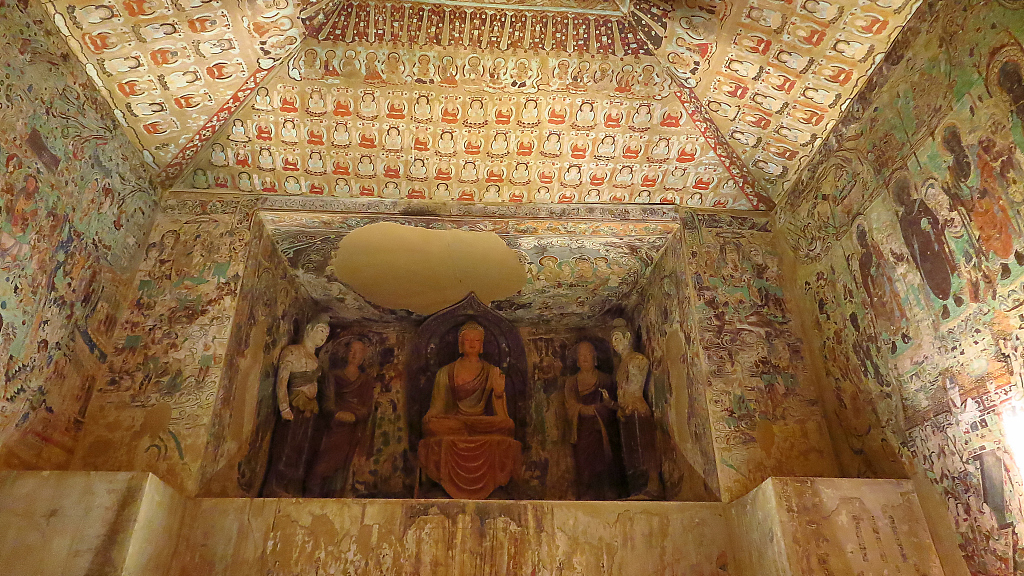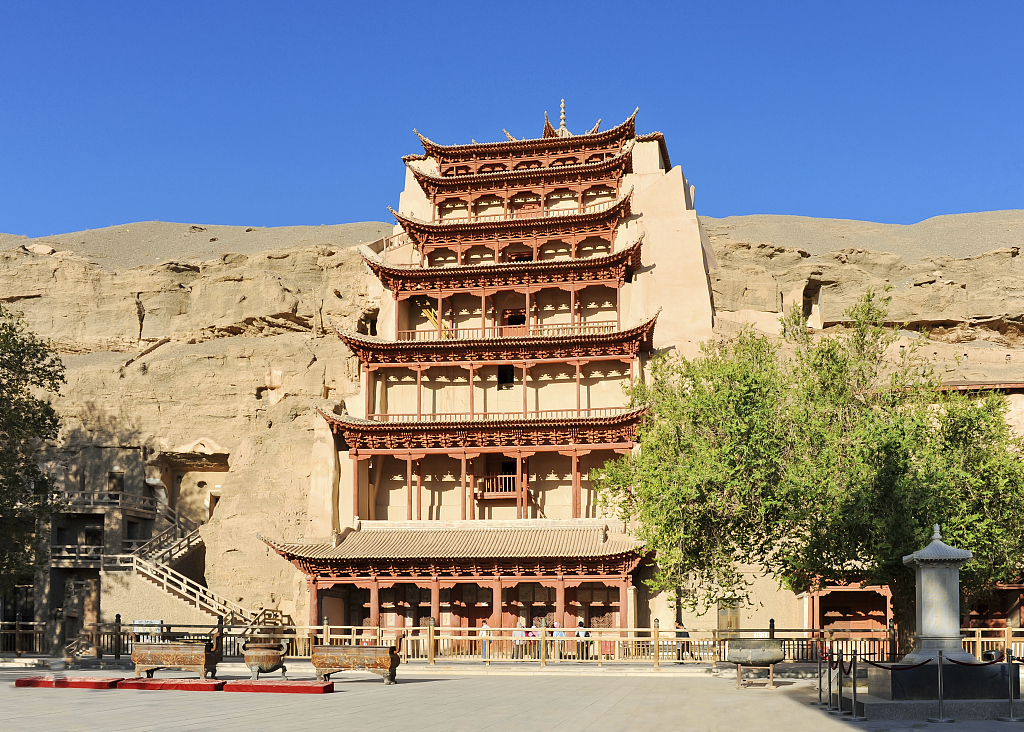

Research laboratories that could simulate environmental conditions surrounding historical sites and relics have been put into operation, helping Chinese researchers in their cultural heritage protection endeavors.
Zhao Liangsheng from the Dunhuang Research Academy in northwest China's Gansu Province told Xinhua that the platform is already in use with a number of preliminary experiments already carried out.
Dunhuang was a major city along the ancient Silk Road and boasts a number of cultural and historical attractions, including the caves of the Mogao Grottoes, a UNESCO World Heritage List site.
The laboratories, which received 40 million yuan (5.6 million U.S. dollars) in investment, will contribute to understanding the weathering of rocks in grottoes and the mechanism of salt damage on murals.
The facilities can simulate various environmental conditions such as temperature, humidity, sunlight, rainfall, snow and soil salinity. They can help scientists understand the different types of strain, such as thermal and physical damage, which lead to the deterioration of relics in their natural environment; and advise conservation research.

The Mogao Grottoes of Dunhuang, Gansu Province. /VCG Photo
Conservation efforts in places like Dunhuang have been hindered by the unpredictable effects of various natural and environmental factors on cultural relics.
Over the years, Chinese research institutions such as Dunhuang Research Academy have conducted in-depth research on the mechanism of damage to grottoes and murals, but efforts to protect against the influence of environmental factors were limited.
With these laboratories now in service, heritage conservation can move from rescuing relics to actively preventing their deterioration.
"The laboratory will not only serve in the field of cultural relics protection by the Dunhuang Research Academy, but also conduct experiments needed for cultural relics protection across the country," said Zhao.

Copyright © 2018 CGTN. Beijing ICP prepared NO.16065310-3
Copyright © 2018 CGTN. Beijing ICP prepared NO.16065310-3